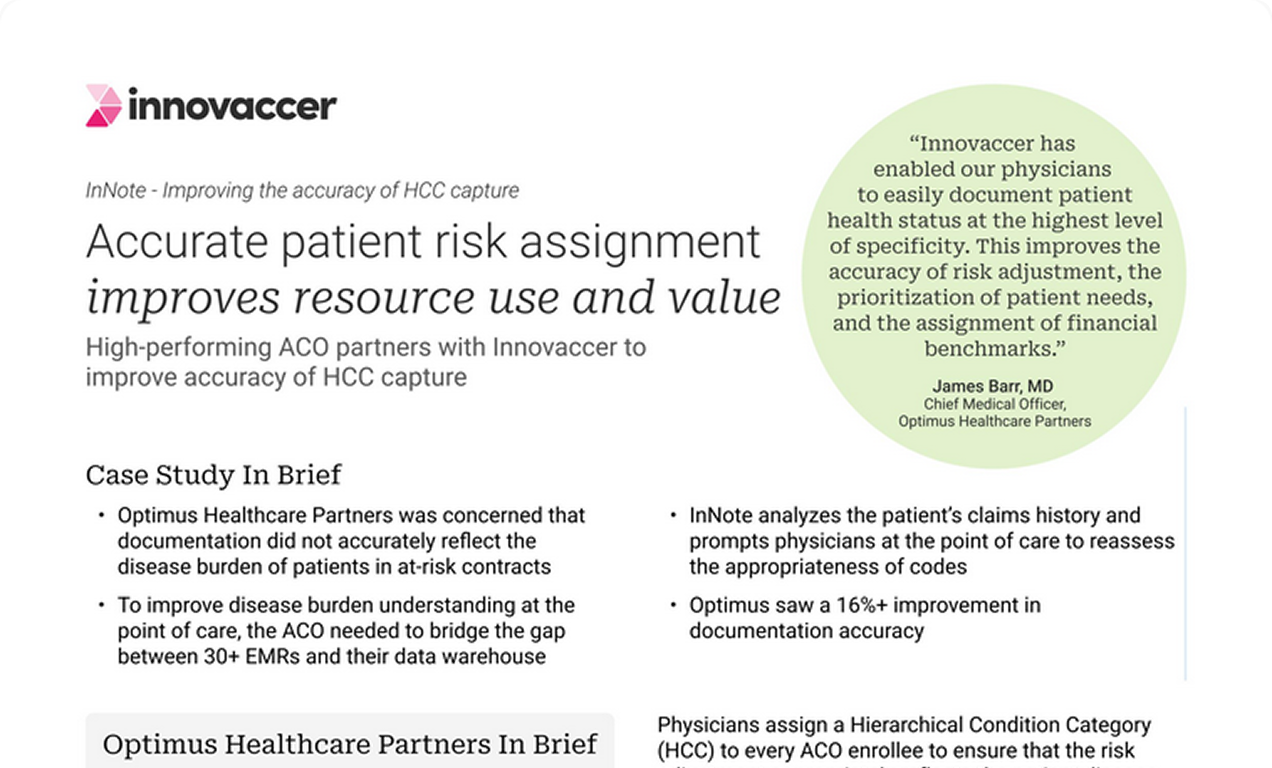Advancing Patient Recovery with Post-operative Care

Data is the new oil. It is available across hospital EMRs, labs, physician offices, and all possible real-world data sources. It is critical to access the right data at the right time for the purpose at hand. With ‘Patient-centrism’ gaining popularity in the healthcare sector, the spotlight has fallen on the need for a data repository, where all the relevant data pertaining to the patients’ medical history, allergies, claims, and more are made available in real-time. Integrating the patient data from disparate sources into a standardized format creates a patient-360 profile that makes it truly interoperable across the healthcare continuum for better care delivery.
Post-operative care involves the care received after a surgical procedure and often includes pain management and wound care as part of the healing process. It may continue even after the patient’s discharge, therefore, it is imperative for the provider to teach the patient about the potential side effects and complications of the procedure. In this entire process, the information around the patient’s medical history plays a crucial role in facilitating healing and eliminating risks. Surgeries are generally elective instead of emergent, and for patients with severe illnesses or pre-existing conditions, it requires a different approach to care as per patient characteristics.
With the growing data dependency, it is vital to understand how robust care management and seamless coordination can redefine post-discharge surgery planning and help hospitals increase incentives with enhanced care outcomes.
Steps to Surgical Planning with the FHIR®-enabled Data Activation Platform
- Data integration and activation by analyzing clinical and social factors.
- Execution of machine-learning algorithms to proactively identify high-risk surgical patients.
- Virtual pre-operative interventions and comprehensive engagement for prioritized patients ready to undergo surgery.
- Patient follow-up with pre-built care protocols that significantly reduce the post-surgery readmission rate.
Impact of Social Determinants of Health (SDoH) in Surgery Planning
The Social Determinants of Health factors are crucial in planning surgeries for patients as many times they can impact patient health outcomes more than the procedure itself. For instance, a patient suffering from COPD undergoing a long volume reduction surgery would need to participate in a pulmonary rehabilitation program before and after the surgery. Hospitals and health systems need systematic care protocols in place to optimize care for high-risk patients undergoing surgery. It is important that care teams have streamlined worklists that organize care management activities in a single location. Embedded pre-built care protocols within these worklists help the care managers standardize the optimization process. This is where the data activated platform is critically important. It facilitates robust care management, ensuring patient recovery post-surgery, with better assessment of a patient’s health status through dashboards, and drives better patient engagement to increase adherence to care protocols and medication. This end-to-end care management works towards enabling the hospitals to avoid costly and debilitating complications and comorbidities while improving patient health outcomes and reducing readmission rates.
Moving Towards Holistic Care
The FHIR-enabled Data Activation Platform allows providers access to care insights and enables priority actions that they cannot take using their EHRs alone. It offers an in-workflow approach to enable cost-effective care delivery at the point of care without any EHR integration dependencies. With this platform, providers have the resources to improve clinical outcomes and boost the overall network performance.
To learn more about the benefits of the FHIR-enabled data platform in facilitating holistic care, get a demo.
For more updates, subscribe to our newsletter.


.png)






.avif)









.svg)
.svg)

.svg)

